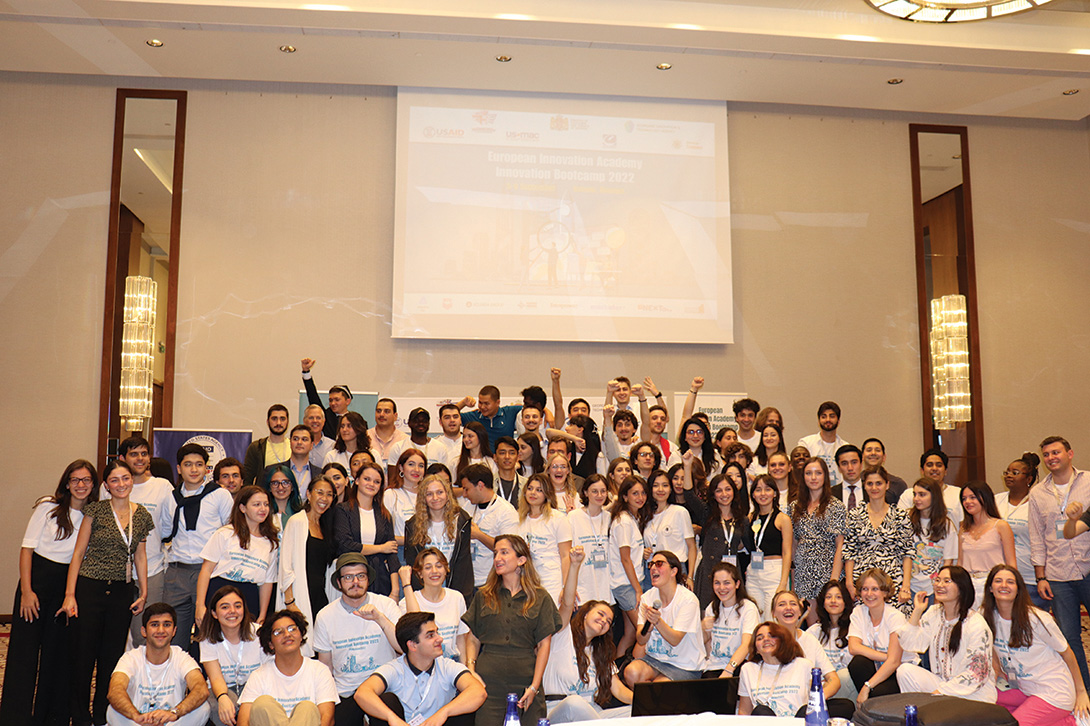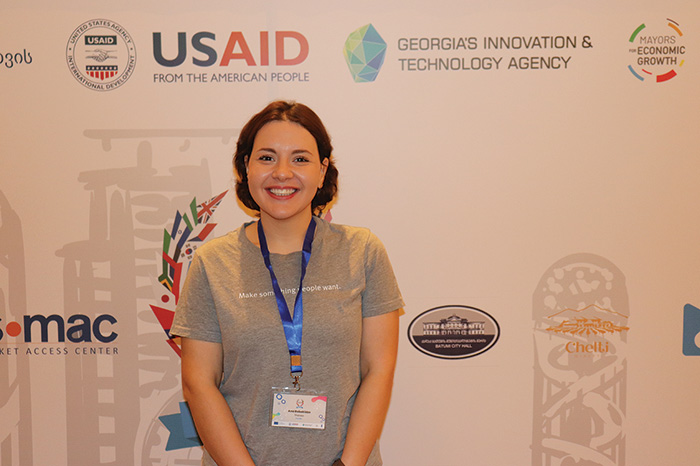Georgia’s advances toward an innovation economy
 Numerous international studies highlight the role of innovation in the creation of prosperity. This is certainly reinforced by examples such as Estonia, Singapore, and Ireland, which transformed their economic models from largely factor-based to predominantly innovation-based within the span of two decades.
Numerous international studies highlight the role of innovation in the creation of prosperity. This is certainly reinforced by examples such as Estonia, Singapore, and Ireland, which transformed their economic models from largely factor-based to predominantly innovation-based within the span of two decades.
Georgia’s journey toward an innovation-based economy began with the creation of Georgia’s Innovation and Technology Agency (GITA) in 2014, which laid the cornerstone on which the country’s innovation infrastructure could be built. From the outset, USAID played a key role in promoting innovation and the knowledge-economy by engaging with GITA in strategic areas such as acceleration services for Georgian startups. However, in the last year, these efforts have been amplified by a dramatic increase in international donor organizations’ support for connecting the elements needed to create an innovation ecosystem.
While there are many elements in the strategy to make innovation a catalyst for high-value job creation, investment, and sales/revenue increases for SMEs, connecting the innovation ecosystem is an important step in laying the foundation for success. The innovation eco-system consists of four primary elements, namely a) early-stage entrepreneurial education, b) acceleration and services to startups, c) investor education, and d) access to finance through a venture capital or other mechanism. Over the last three years, USAID, the European Union, UNDP, the World Bank, and other donors have been involved heavily in these areas.

One example of early-stage entrepreneurial education activities in Georgia can be found in the recent introduction of the European Innovation Academy to Batumi. The European Innovation Academy is headquartered in Estonia but conducts innovation-based programming around the world. Through USAID’s partnership with the European Innovation Academy, Caucasus University, the Sutardja Center for Entrepreneurship and Technology at the University of California Berkeley, GITA, the Ministry of Education, and the Ministry of Finance and Economy of the Adjara Region, the academy held its first-ever innovation bootcamp this year in Batumi, which was attended by 100 youth entrepreneurs from 11 countries. The bootcamp provided university entrepreneurs from around the world the opportunity to connect with each other, hone their leadership skills, better understand the business aspects of entrepreneurship, and fine-tune their ideas. Following a successful bootcamp in 2022, the full-fledged academy will open in the summer of 2023, hosting up to 200 global entrepreneurs per year on Caucasus University’s Batumi Campus.

In recent years, USAID has utilized its connections in the Silicon Valley to form partnerships with the US Market Access Center, Startup Grind, and individual investors to enhance the country’s visibility, as well as to provide vital investment connections and practical technical assistance for entrepreneurs. This has led to Georgia’s emergence as a connecting point for local entrepreneurs and global investors. USAID has also partnered with global universities such as Oxford, the University of California at Berkeley, and the Massachusetts Institute of Technology (MIT) to enhance innovation and the country’s migration to a digital economy. These partnerships have benefitted hundreds of Georgian entrepreneurs by providing them both the skills to succeed and the global connections to scale their ideas.
Another vital element when creating an innovation ecosystem is access to capital. The Government of Georgia and USAID are currently working with investors and other key stakeholders to provide institutional support for the integration of venture capital funds for technology startups to promote Georgia’s transition to the innovation economy. The goal is to provide a mechanism for Georgian entrepreneurs to access both early-stage and mezzanine-level capital to facilitate enterprise growth.

Establishment of a viable venture capital fund will send a strong signal to both entrepreneurs and global investors and will likely lead to the creation of additional funds. This has already occurred in Estonia and numerous other countries that began their support for the startup ecosystem with one fund, but now have numerous others. To support establishment of a fund, USAID is developing a guidebook that will not only provide solid information for investors but will also assist other funds in entering the market.
Connecting the innovation ecosystem will benefit early-stage entrepreneurs, such as those vying for GITA grants and/or participating in mechanisms like the European Innovation Academy, by putting in place both investor education and later-stage financing. This, in turn, will greatly benefit the country’s standing as an emerging innovation hub. Previous examples have also shown that venture capital funds often act as a catalyst for policy reform measures that strengthen the entire innovation ecosystem.
In parallel with the integration of access to financing opportunities through venture capital funds, there will be an ongoing need for technical assistance/acceleration services for entrepreneurs that hope to access investment, as well as educational opportunities for potential Georgian investors in terms of how to understand and participate in early-stage equity investing. One initiative focused on this is the partnership between Startup Connect, the European Union, UNDP, and USAID for the Startup World Cup Georgia competition, which featured ten finalists who pitched their concepts to a panel of Silicon Valley experts. The SWC Georgia winner, Ana Robakidze of Theneo, went on to pitch at the Startup World Cup global competition for the potential of gaining a $1 million investment. Theneo is an application that addresses one of the most relevant issues in coding, namely the reduction of time needs for generating and maintaining API docs. Theneo is the first company to automate the API document generation and maintenance using machine learning.
The Startup World Cup Georgia competition and a number of other initiatives aimed at enhancing innovation and entrepreneurship are supported by the government, business, and international partners; they are part and parcel of ensuring the success of a venture capital fund as they prepare entrepreneurs to utilize capital wisely and position themselves for additional investment.
Robust partnerships between public and private sector institutions will position Georgia as the nexus for innovation, thus laying the foundation for high-value employment and investment, according to USAID Economic Security Program Chief of Party Mark McCord. “These partnerships are major steps forward in Georgia’s transition to an innovation and knowledge-based economy. Estonia was the example of the past in terms of innovation, but we believe that Georgia can be the model for the future. The goal should not be to mirror Estonia, as Georgia has its own unique culture and context, but rather to position the country as one where creativity is supported by a systematized and sustainable innovation ecosystem.”
Georgia’s transition to an innovation-based economy has been and will continue to be enhanced through support from the Government of Georgia, as well as a plethora of donors, international organizations, and entrepreneurs who will build on the foundation already laid. As such, Georgia has the potential to emerge as not just a regional innovation hub, but a global example of collaboration that leads to impact.

